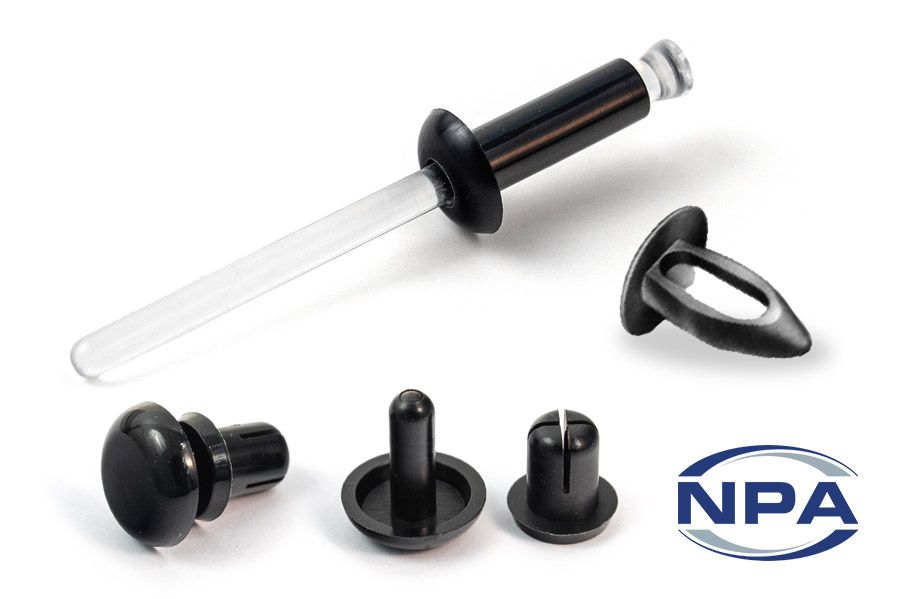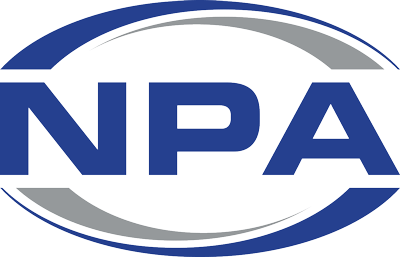
The term “fixings and fasteners" is commonly used throughout the manufacturing and construction industries in particular.
It’s a broad term covering a multitude of product types, each with their own specific features and applications.
The purpose of this guide is to help those responsible for purchasing, gain a better understanding of this category.
Here are some of the most commonly asked questions when it comes to the subject of ‘fixtures and fasteners’.
What are fixings and fasteners?
Fixings and fasteners are hardware components that are used to join two or more objects together. They can be used in a wide range of applications, from construction to manufacturing and beyond.
What is the difference between a fixture and a fastener?
A fixture is a hardware component that is used to hold an object in place, while a fastener is a hardware component that is used to secure two or more objects together.
Fixtures are typically stationary and are used to support or position objects, while fasteners are mobile and are used to attach or detach objects.
Are fasteners the same as bolts?
No, fasteners and bolts are not the same thing. A bolt is a type of fastener that is designed to be threaded into a threaded hole, while a fastener is a more general term that can refer to a wide range of hardware components used to join two or more objects together.
What types of fixtures and fasteners are available?
There are many different types of fixtures and fasteners available, including screws, bolts, nuts, washers, rivets, pins, clips, brackets, clamps, hinges, and more.
Each type of fixture and fastener has its own unique characteristics and is designed to be used in specific applications.
What are fixtures and fasteners used for?
Fixtures and fasteners are hardware components that are used to join two or more objects together.
They can be used in a wide range of applications, from construction to manufacturing and beyond. Fixtures are used to hold objects in place, while fasteners are used to secure objects together.
What materials are fixtures and fasteners made from?
Fixtures and fasteners can be made from a variety of materials, including steel, stainless steel, aluminium, brass, bronze, titanium, plastic, and more.
The choice of material will depend on the specific application and the properties required for the fixture or fastener to function effectively.
What are the 4 common types of metal fasteners?
The four most common types of metal fasteners are screws, bolts, nuts, and washers. These are used in a wide range of applications, from construction and manufacturing to automotive and aerospace.
Why use plastic fasteners?
Plastic fasteners are lightweight, durable, and corrosion-resistant, making them ideal for use in applications where metal fasteners may not be suitable.
They can also be moulded into a wide range of shapes and sizes, making them versatile and easy to use in a variety of applications.
Additionally, plastic fasteners are often less expensive than their metal counterparts, making them a cost-effective solution for many applications.
What are specialty fasteners?
Specialty fasteners are a type of fastener that is designed for specific applications or specialized purposes. These fasteners are typically made from high-quality materials and feature unique designs or shapes that make them ideal for particular tasks or environments.
Some common types of specialty fasteners include:
- Security fasteners: These fasteners are designed to prevent unauthorized access or tampering. They often feature unique heads or drive systems that require special tools to remove them.
- Aerospace fasteners: These fasteners are used in the aerospace industry and must meet specific requirements for strength, durability, and resistance to vibration and corrosion.
- Electronic fasteners: These fasteners are used in electronic devices and must be small, lightweight, and resistant to vibration and shock.
- Medical fasteners: These fasteners are used in medical devices and must be biocompatible, sterile, and resistant to corrosion.
- Structural fasteners: These fasteners are used in construction and must be able to withstand high loads and resist corrosion and fatigue.
How do I choose the right fixture or fastener for my application?
To choose the right fixture or fastener for your application, you need to consider a range of factors.
These include the size and weight of the objects being joined, the level of tension or torque that will be applied, the environmental conditions (such as temperature and humidity), and more.
Consulting with a supplier or expert in the field such as NPA, can also help you choose the right hardware component for your specific application.
How much weight can a fixture or fastener support?
The weight that a fixture or fastener can support will depend on several factors, including the material and size of the hardware component, the method of installation, and the specific application.
Manufacturers typically provide load capacity specifications for their products to help users determine the maximum weight that can be supported.
What is the maximum torque or tension that a fastener can withstand?
The maximum torque or tension that a fastener can withstand will depend on several factors, including the material and size of the fastener, the thread pitch and diameter, the strength of the thread engagement, and more.
Manufacturers typically provide torque and tension specifications for their products to help users determine the maximum force that can be applied.
What is the lifespan or durability of a fixture or fastener?
The lifespan or durability of a fixture or fastener will depend on several factors, including the material and quality of the hardware component, the level of stress or wear that it is subjected to, and the environmental conditions
Some hardware components may require regular maintenance or replacement to ensure optimal performance.
How do I properly install and maintain fixtures and fasteners? Proper installation and maintenance of fixtures and fasteners is essential to ensure optimal performance and longevity.
Installation procedures may vary depending on the specific hardware component and application, but generally involve ensuring proper alignment, torque, and fastening procedures.
Maintenance procedures may involve regular cleaning, inspection, lubrication, and replacement of worn or damaged components.
Are there any safety considerations when using fixtures and fasteners? Yes, there are several safety considerations when using fixtures and fasteners.
These include ensuring proper installation and torque to prevent the risk of failure or detachment, using appropriate personal protective equipment when handling or installing hardware components, and following all relevant safety regulations and guidelines.
Here are some more questions you may have of NPA
What is the lead time for delivery of fixtures and fasteners?
Depending on your location, NPA can usually guarantee next day delivery for all products, if orders are placed before 11.am.
What are the minimum and maximum order quantities for fixtures and fasteners?
Minimum and maximum order quantities can vary by individual product. For more details, please visit our online store HERE.
Can you provide samples of the fixtures and fasteners before placing a bulk order?
NPA would be happy to provide samples prior to placing bulk orders on most of our products. Call us today or visit here to place your request.
Are there any discounts available for bulk orders or repeat customers?
NPA offers attractive discounts for bulk orders from regular customers. For more detail, please call us on (08) 8268 2733 or email [email protected]
What are the payment terms and methods for purchasing fixtures and fasteners?
For account holders, our payment terms are 30 days net. To register for an online account, click here.
What are the shipping options and costs for fixtures and fasteners?
For shipping arrangements to meet your specific needs, please call NPA on (08) 8268 2733
Can you provide technical support or assistance with selecting the right fixtures and fasteners for my specific application?
NPA will gladly offer you all the technical support and advice you need. Simply phone (08) 8268 2733 and talk to one of our technical advisors.
Do you have any certifications or quality control processes in place for fixtures and fasteners?
NPA has strict quality control processes in place to guarantee the quality of our products. We are certified under the ISO-9001 quality assurance system.
Can NPA make customised products for specialised applications?
Definitely. NPA can take your idea from prototype to manufacture and distribution thanks to our hi-tech prototyping and manufacturing technology.
You can make an enquiry by phoning us on (08) 8268 2733 or by simply clicking this link.
View other products in the NPA Buyer’s Guide Series

